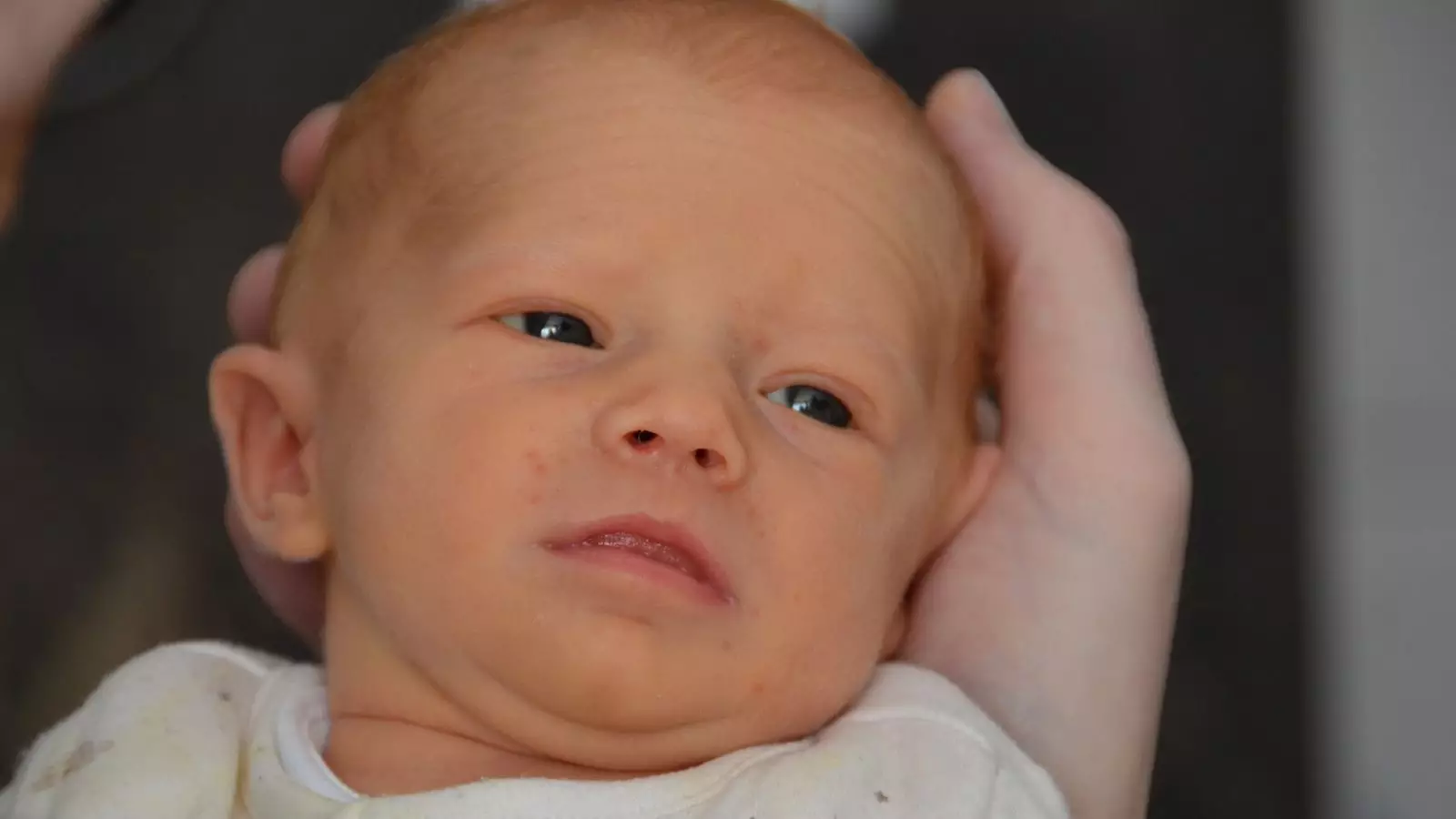In a remarkable turn of events, the birth of Amy Isabel, the first child in the UK born from a womb transplant, serves as a beacon of hope for many women facing the harrowing reality of infertility. Grace Davidson, her mother, encapsulated this transformative experience with a powerful sentiment, declaring the birth to be the “greatest gift we could ever have asked for.” This powerful story not only pushes the boundaries of medical science but illuminates the profound emotional landscape surrounding the choices and sacrifices made in the quest for parenthood.
It is essential to recognize that Grace was born with Mayer-Rokitansky-Kuster-Hauser (MRKH) syndrome, which affects one in every 5,000 women. The emotional ramifications of such a condition can be devastating, casting a long shadow over the dreams of motherhood. However, through groundbreaking medical advancements and the selfless act of her sister, Amy Purdie, who donated her womb, Grace’s dream transitioned from mere hope to vibrant reality. As a learning liberal, I find it imperative to advocate for such medical progress, which not only enhances individual lives but also contributes to collective societal well-being.
Personal Sacrifice and Family Bonds
The altruistic nature of Amy Purdie’s decision cannot be understated. By donating her womb, she did not merely facilitate a medical procedure; she provided the gift of life and nurturing that every family cherishes. With Amy Isabel now thriving, Ms. Purdie has undoubtedly cemented a bond that transcends biological ties—a living testament to the love and depth of family connections. The emotional fallout of this act ripples out, showcasing how selflessness can invoke hope and transform lives.
It is through stories like those of the Davidson family that we face the complexity of human relationships—showing that the drive to nurture and raise children often involves extraordinary sacrifices. This narrative of familial love challenges traditional notions of parenthood and raises vital questions about the very essence of what it means to be a mother. Are the biological bonds that link a mother to her child the only defining factors? This groundbreaking event opens the door for re-evaluating these deep-seated beliefs in our society.
The Medical Marvel and Its Implications
Delving deeper into the procedure itself, Professor Richard Smith and Isabel Quiroga reflect not only on the technical aspects but also on the emotional weight carried throughout the process. A complex procedure that galvanized minds and hearts alike exemplifies the heights we can achieve when determination meets innovation. The success of this womb transplant in the UK should ignite a commitment to broaden our healthcare approaches, allowing access to specialized reproductive treatments for others who experience similar conditions.
The challenges that the medical team faced are underscored by the immense pressure they were under, particularly the moment they were asked to hold baby Amy after her delivery. Such instances highlight the ethical considerations of reproductive technologies and the responsibility that comes with such profound interventions. Advocating for accessible healthcare solutions must be at the forefront of our policies, ensuring that women facing these unique challenges no longer grapple with issues of availability.
Hope for a New Generation
Amy Isabel’s birth stands not only as a personal triumph for Grace and her family but also as a clarion call for all women affected by infertility or congenital absence of a uterus. The growing conversations around womb transplants expose a critical gap in reproductive rights and options available to women. The barriers of access, cost, and awareness must be actively dismantled to pave the way for more success stories like that of the Davidson family.
The emotional journey endured by the Davidson family, marked by the turmoil of waiting and uncertainty, underscores the need for empathetic policies that support families navigating these challenges. It is crucial that we, as a society, recognize the deep emotional labor tied to reproductive health and fund and support medical research that can lead to more successful outcomes for those in need.
In the end, this story of resilience brings to light the ongoing battle for reproductive freedom. It compels us to engage more critically with the structures that govern our reproductive rights and highlights the importance of altruism, innovation, and unwavering hope.


Leave a Reply